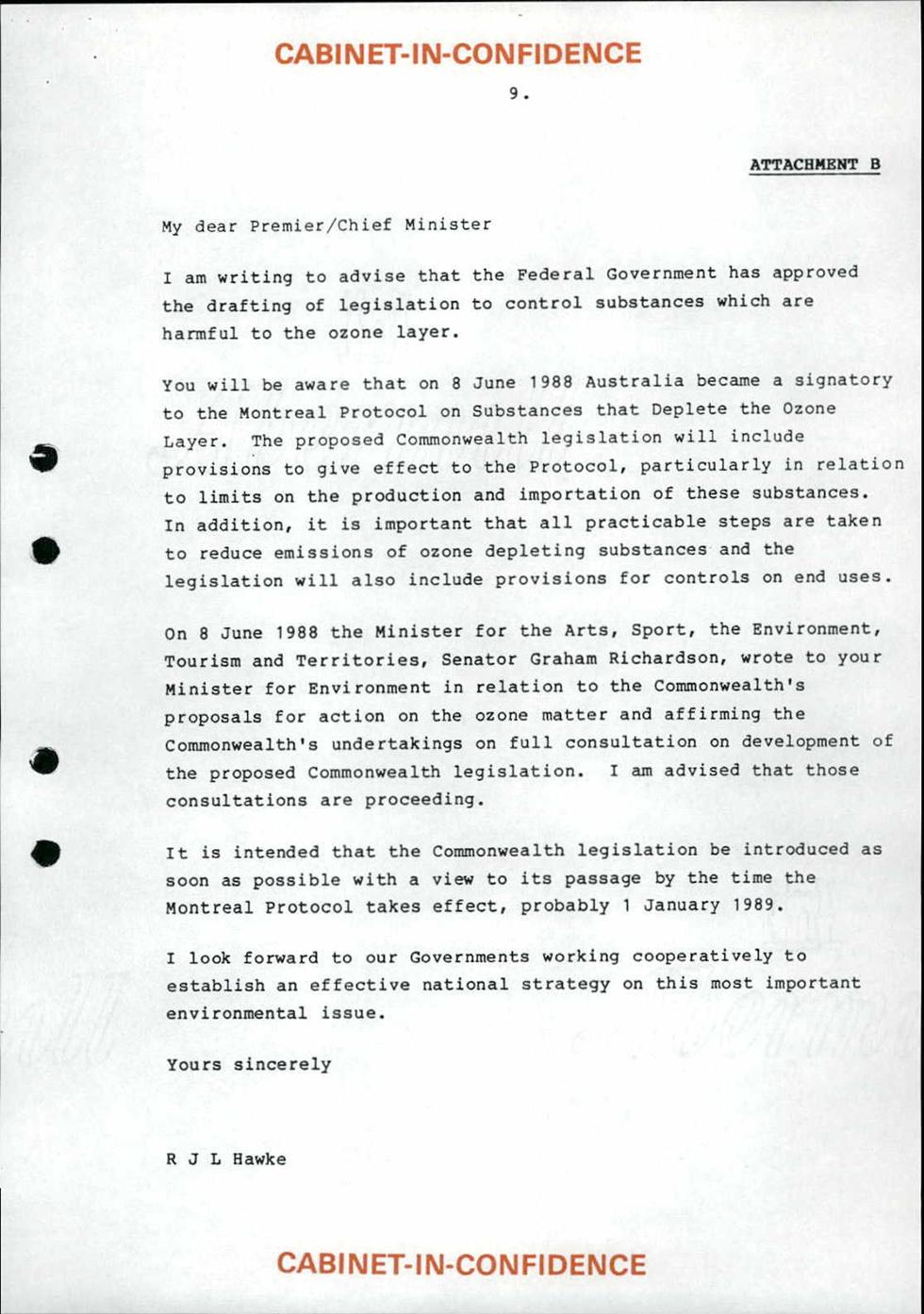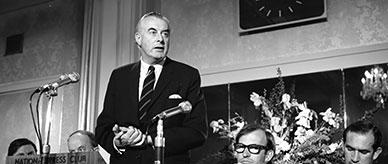


About this record
In this draft letter Prime Minister Bob Hawke expresses his desire to work cooperatively with state and territory governments to reduce emissions that cause depletion of the ozone layer. The global response to the hole in the ozone layer is regarded as one the world’s most significant environmental achievements.
The ozone layer serves as a shield to reduce harmful ultraviolet (UV) radiation from reaching the Earth’s surface. This radiation causes skin cancer, amongst a range of other impacts.
In the 1970s American scientists began studying the impact of chlorofluorocarbons (CFCs) on the Earth’s atmosphere. At the time, CFCs were used in a range of products such as aerosol spray cans, refrigerators and air conditioners. Scientists observed a thinning of the ozone layer (most notably at the South Pole) and linked this to the use of CFCs. However, these findings were disputed by industries that relied on CFCs to manufacture their products.
In 1985 British scientists discovered a hole in the ozone layer above Antarctica. This discovery caught the attention of the media and governments across the world because of the health risks involved. Later that year, 20 countries signed the Vienna Convention for the Protection of the Ozone Layer. In 1987, under the umbrella of the Vienna Convention, the Montreal Protocol on Substances that Deplete the Ozone Layer established a timetable for countries to phase out the use of CFCs and other ozone-depleting substances. In 1990 an international fund was established to support developing nations to meet their obligations under the Montreal Protocol.
Australia has been at the forefront of action to protect the ozone layer due its increased vulnerability to changes in the ozone layer because of its southern position. Under Prime Minister Bob Hawke, Australia was one of the first countries to sign the Montreal Protocol and it shared its expertise with other nations. It worked with the states and territories and with industry to pass legislation to phase out the importation, production and supply of ozone-depleting substances.
Australia also contributed to the international fund that assisted developing nations to respond to this issue. Since 1987, every Prime Minister has continued to support the Montreal Protocol and Australia has met or exceeded all its targets under this agreement.
In 2012, the Montreal Protocol became the first international environmental treaty to achieve full ratification, being signed by every country in the United Nations. This international effort has led to a significant reduction in the depletion of the ozone layer, which scientists expect to completely heal by 2050.
Need help with your research?
Learn how to interpret primary sources, use our collection and more.

